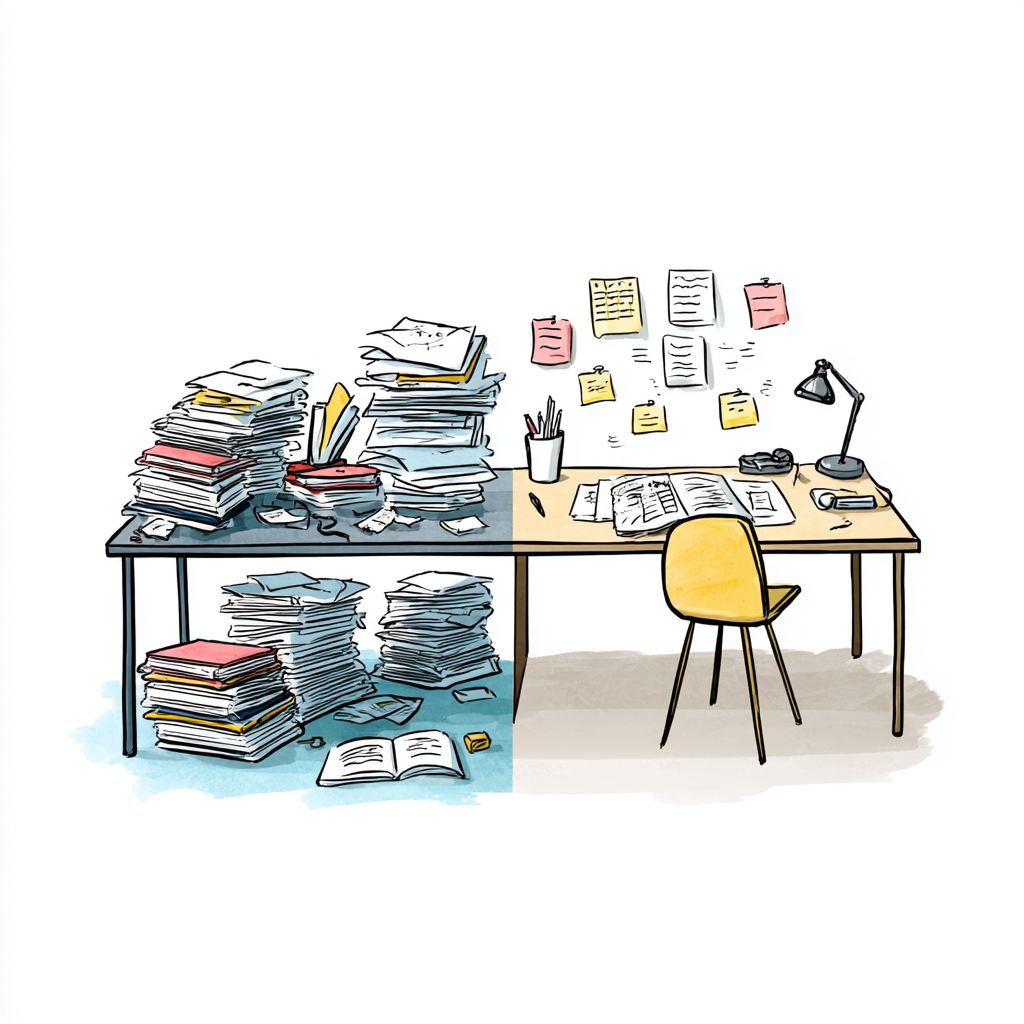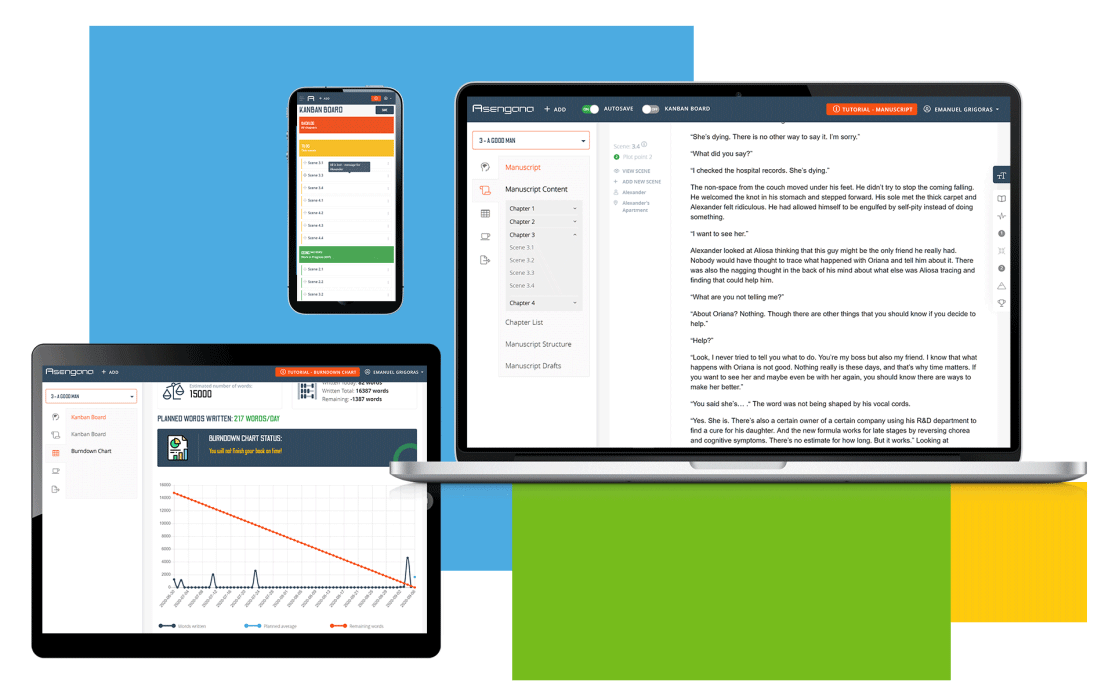I spent months telling myself—and everyone who asked—that I was « busy writing. » My desk was overflowing with notebooks, post-its, and I was trying to get together notes I wrote to myself in Slack and other docs in my phone. From dawn until dusk, I shuffled papers, crafted outlines, tweaked character biographies, and diligently built universes. And yet, after all that apparent activity, when someone finally asked, « So, what have you actually written? » I was left painfully silent.
You see, I had mistaken activity for productivity. This misconception is surprisingly common among writers, who easily convince themselves that all hours spent working—even if spent circling around the task rather than tackling it—are productive hours. The truth, as I learned painfully, is that being busy alone rarely moves a story forward.
This realization hit me hardest one day when the excel file I was using to keep track of everything got so many sheets that navigating through them become a lot of work. That moment was a wake-up call. I realized the true measure of productivity for writers isn’t measured by how long you sit at your desk but by how deliberately you focus on the actual act of writing. All the supplementary activities—research, plotting, outlining—while crucial, must serve your central purpose: putting words on the page. This isn’t to say research and preparation aren’t important. Indeed, they’re essential. But when these supporting activities become comfortable hiding places, preventing the difficult and vulnerable act of actual writing, they become productivity traps.
After confronting this truth, I made a significant shift. I started Asengana and we developed a software that allowed me to keep my writing as well as me playing busy bee in check.
Also, I implemented a simple but powerful strategy: the « one-hour rule. » Every single day, no matter how much research or planning I had scheduled, I committed to one focused hour of pure, uninterrupted writing. This hour wasn’t about perfection or refinement; it was purely about creating fresh words, narrative progress, and raw material to shape later.
At first, the hour was intimidating. I felt exposed, vulnerable, uncertain—precisely because it forced me to confront my avoidance. But gradually, something incredible happened: I began to see tangible progress. Pages filled. Chapters grew. My sense of momentum surged. Furthermore, this small shift improved my research and outlining sessions. Knowing I had an hour each day to directly face the blank page sharpened my approach to preparation. Instead of vague explorations, I researched with specific scenes or character arcs in mind. I went to the character page in my project and added details getting into that mindset so I can work on the specific scene for which that character was POV. I started to also add in the Doing column of my Kanban board scenes with the same POV and not in plot order.
This new productivity paradigm didn’t only help me finish drafts—it changed my creative mindset. It reinforced the idea that genuine creativity thrives when we’re brave enough to leap into action, accepting imperfection along the way. Busy is comforting because it simulates progress without risk. Real productivity demands consistent, focused action.
To apply this lesson practically, start by auditing your daily writing habits. If your schedule feels full yet your progress minimal, challenge yourself to differentiate busywork from productive work. Carve out a protected time slot each day—no excuses, no compromises—to write freely. Hold yourself accountable for producing actual content, even rough drafts.
Over time, you’ll discover the difference between being busy and being genuinely productive. You’ll realize the joy and satisfaction of tangible progress, and your creativity will flourish under this disciplined freedom. In essence, you’ll transform leftover ideas and research—the « scraps » of activity—into vibrant, finished stories that truly resonate.








